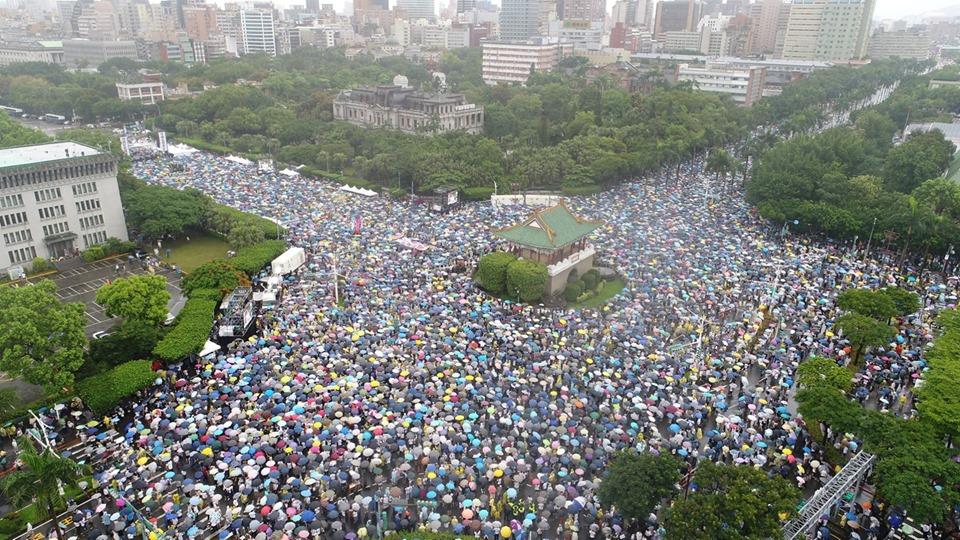Tens of thousands of Taiwanese citizens braved heavy rain for more than four hours on June 23 to attend a Taipei rally calling for a ban on pro-Beijing media outlets that push the Chinese regime’s agenda.
Beijing considers the self-ruled island part of its territory, despite Taiwan having its own democratically elected government, military force, and currency. The Chinese regime has recruited Taiwanese military personnel to conduct espionage on its behalf, and has hired local gang members to intimidate China’s critics.





